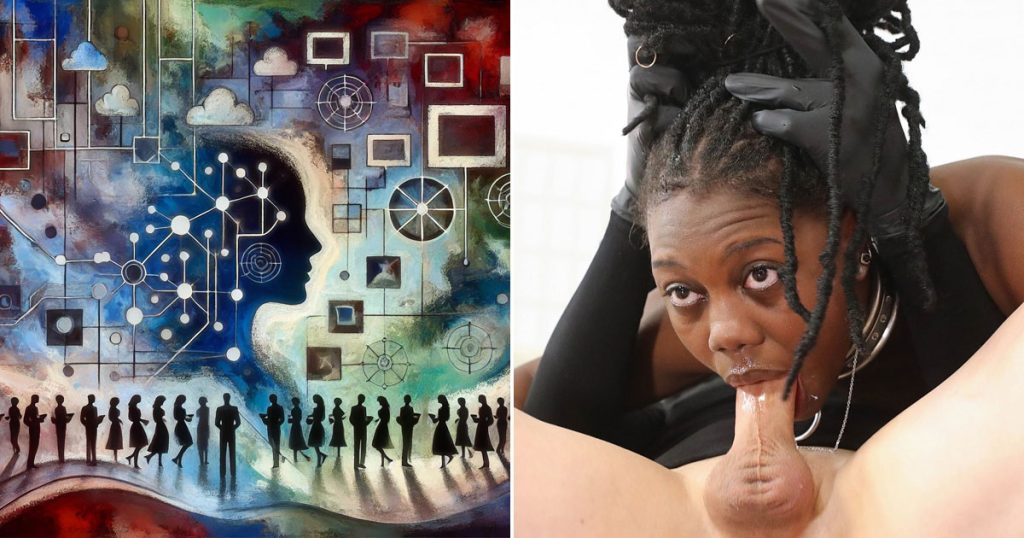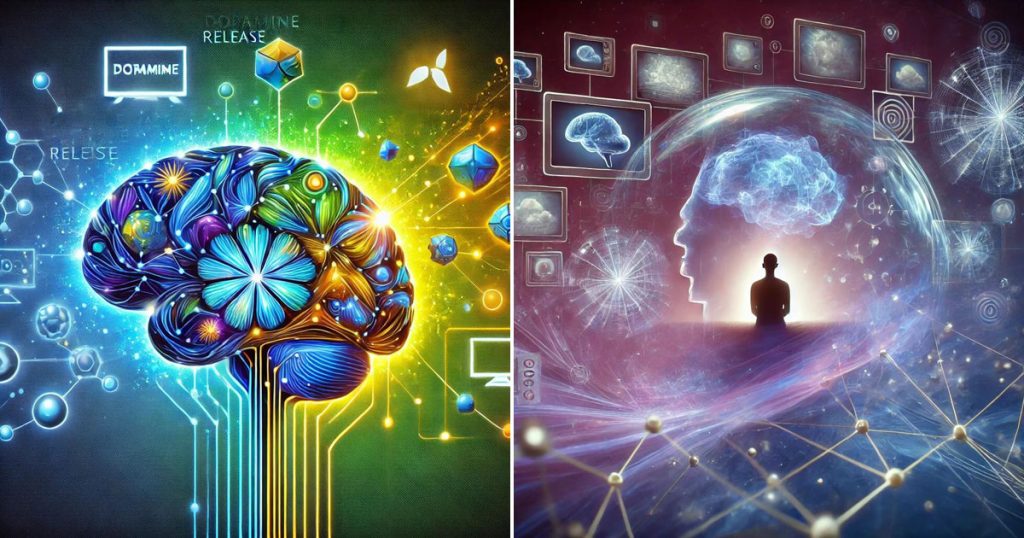
In the digital age, more people are engaging with fantasy content online, including sexual scenarios they may never experience in real life.
This phenomenon raises questions about the motivations behind why people are drawn to specific media genres that diverge from their personal experiences or preferences, such as extreme hardcore face fucking.
Have you ever wondered why specific porn fantasies captivate us, even if we’d never live them out?
Below, we dive into the psychological and cultural factors that drive people to watch content they may never personally experience.
The Allure of Taboo Sexual Fantasies

We must consider the underlying psychological principles when we examine why people engage with fantasy content that they wouldn’t pursue in real life.
Watching content creates a safe space for exploring sexual themes and scenarios without the moral concerns or risks of real-life involvement.
For many, this “safe distance” makes even the most unconventional scenarios appealing, allowing people to experience emotionally charged situations without direct participation.
Some viewers, for instance, may find themselves drawn to genres like interracial throat fucking porn as a way to confront and explore themes that push against social or cultural boundaries.
Why Some Scenarios Are Too Thrilling to Ignore
For many, the allure of fantasy content lies in its ability to explore themes far beyond ordinary experiences.
From softer genres to more intense subgenres, like hentai, viewers find themselves drawn into imaginative worlds.
With its animated, surreal portrayals, this genre allows for visual escape and exaggerated experiences.
On the more intense side, niches like extreme porn test comfort zones, creating thrill and fascination in a safe, observational setting.
Engaging with these intense forms of media satisfies a human drive to push boundaries and explore the outer edges of sexual fantasy, especially within adult content.
Merging Fantasy and Reality in Niche Genres
Just as some viewers are drawn to hentai for its exaggerated narratives, others may engage with genres that confront real-world dynamics.
These genres blend social themes with fantasy, pushing cultural boundaries and stirring curiosity.
Exploring these genres allows individuals to examine cultural norms from a distance, sparking reflections on personal and societal values through the lens of fantasy.
Escapism: Fantasy as a Path to Stress Relief
For many viewers, watching fantasy scenarios offers an escape from daily stressors.
This form of escapism aligns with a broader human drive to experience heightened emotions, explore new perspectives, and find relief from routine pressures.
Viewers can “try on” identities or roles that contrast with their lives by watching rather than participating.
Escapist media consumption offers an outlet for these feelings without requiring real-world actions or consequences, providing a safe way to satisfy curiosity.
Cultural and Societal Influences on Media Preferences

Cultural influences significantly shape why people are drawn to particular types of content.
Media portrayals, societal norms, and the popularity of specific genres affect what’s considered appealing or “forbidden.”
In certain cultures, taboos surrounding intimate or controversial themes amplify the allure of consuming related content, offering a way to breach unspoken boundaries, even if only as an observer.
This dynamic adds intrigue and fascination, making the content feel thrilling and unattainable.
Breaking Social Norms and the Allure of the Forbidden
Human psychology often gravitates toward the “forbidden” to push back against social conditioning.
While some boundaries are essential for societal order, many people find a form of liberation in exploring content that challenges these norms.
The experience of pushing against these restrictions within the safe space of digital content feeds curiosity and provides a vicarious sense of rebellion.
How Our Brains Respond to Watching Fantasy Scenarios
On a neurological level, consuming content can trigger powerful responses in the brain similar to those experienced during direct participation.
Our brains often have difficulty distinguishing between real and fictional events, making viewers feel fully immersed in the scenarios they’re watching.
Mirror neurons, which fire when we observe others, create a sense of empathy and emotional resonance with on-screen situations.
These biological responses explain why viewers might feel deeply connected to the experience.
Dopamine and the Thrill of Unusual Content

Dopamine plays a significant role in why we enjoy unexpected or out-of-character content.
This neurotransmitter is released in anticipation of rewards, fueling our desire for new and stimulating experiences.
When viewers watch something unconventional, dopamine levels rise, creating feelings of pleasure and satisfaction that reinforce the behavior.
Consequently, although these scenarios remain fantasies, they still provide a neurochemical reward that is challenging to replicate in everyday life.
Emotional Release Through Fantasy Exploration
For some, watching intense or unusual scenarios provides a form of emotional release.
Engaging with these themes in a controlled way allows viewers to release complex emotions like curiosity, fear, or excitement.
These therapeutic experiences in media can help individuals process emotions that might otherwise remain suppressed, contributing to mental well-being without compromising personal boundaries.
Self-Reflection and Understanding Personal Boundaries
Engaging with these scenarios offers an opportunity for self-reflection as viewers gain insights into their preferences, boundaries, and values.
Experiencing content outside their usual scope can reveal insights about personal comfort zones and potential fears.
This type of self-awareness fosters personal growth, allowing individuals to make more conscious choices in media consumption and real-life interactions.
The Expanding Influence of Digital Content Accessibility
The widespread availability of digital content has increased the visibility and consumption of porn fantasy scenarios.
With instant access to diverse genres, people are more likely to encounter media that diverges from real-life experiences.
This accessibility allows viewers to explore varied themes and narratives, leading to evolving preferences and, in some cases, more open-minded perspectives.
Personalization and the Role of Algorithms
Algorithms on platforms like YouTube, Netflix, Pornhub, and social media personalize content recommendations based on viewer history, subtly guiding individuals toward media that reflects their interests—even if subconsciously.
As a result, viewers are more likely to discover content that diverges from their usual tastes, fostering curiosity and encouraging exploration of themes that may initially seem unfamiliar.
Conclusion: The Deep Appeal of Fantasy Content

The appeal of watching fantasy sexual content like face fucking and hentai, which one wouldn’t personally engage in, stems from a complex blend of psychological, societal, and neurological factors.
By providing a safe outlet for curiosity, escapism, emotional release, and self-reflection, this content satisfies deeply rooted human needs for exploration and understanding.
With the expansion of digital adult content and the influence of recommendation algorithms, people now have more opportunities to explore and redefine their boundaries in ways that resonate with their minds and emotions.
